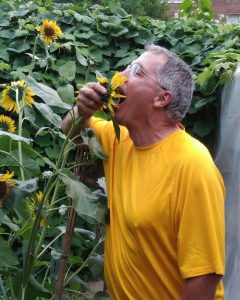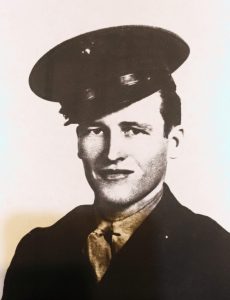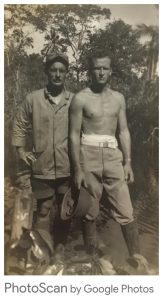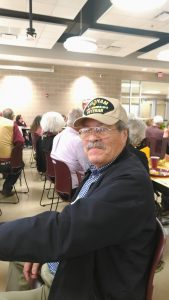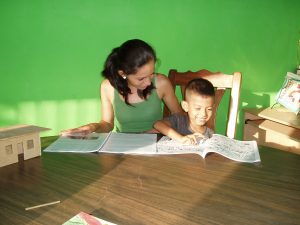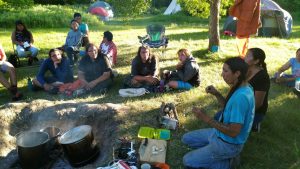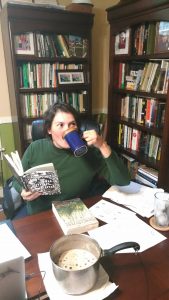Personal Experience with Scholarships. I did receive a number of small scholarships in 1964 when I graduated from Devine High with the major one being to some extent based on grades …. but it was also a socialistic scholarship addressing the needs of my relatively poor family. This Opportunity Award Scholarship of $550 from Texas A&M took care of pretty much of all my expenses. (Of course, expenses were few … because I hitch-hiked for travel, initially I lived in a non-air-conditioned dorm, there was no TV in the dorm or for many expensive extra-curricular activities available in today’s universities, and my computer system was a slide-rule.) This scholarship was the reason I attended and eventually received two degrees from Texas A&M.
Personal Experiences with “Internships.” The scholarships were helpful, and the TAMU Opportunity Award Scholarship was life changing. But it was the “internships” through the years which impacted me the greatest. I was first under the strict tutelage of former Marine Master Sergeant Dad Alton Martin for which I received a place to sleep along with my five younger siblings and the good food of Mom St. Louise I learned to milk the cow at five years of age, and this was a duty each morning and evening. I learned to earn some plata in raising hogs and from part-time jobs directly or indirectly under Dad’s supervision at the diversified feed mill & store in Devine, Texas. And I learned to garden in a sustainable way, mostly with only a shovel & hoe as tools, and composted manure fertilizer from a nearby feedlot. Then at about nine, in the summers I experienced the relatively “cold” mornings going to the fields in the back of an old bob-tail truck and pulling a cotton-sack or wielding a hoe … working the hot fields of green beans, southern field peas, squash, peanuts, watermelons, hay bales, and irrigation pipes … under the supervision of two crew-leaders, super-kind & gentle Antonio (Tony) Cruz and tough, slave-driving, and hard-working Salome Gallegos. (Salome was tough to work for, but because of his sort of ruthless ways, he always had more work, and therefore more money for me! … I’ll also mention as an aside, but yes, as “a statement,” generally it was my brother Lawrence and I who were the only gringos working on these crews.)
Later there were many other “internships,” including under TAMU Food Services Dan Ruiz, my Master’s major professor Dr. Dick Ridgway, Doctoral Major Professor, Dr. Pete Lingren, and Department Chair at St. Philip’s College, Dr. Lanier Byrd. The scholarships and the “internships” in my life all provided funds for furthering my education, but the “internships” were the more educational and robust learning experiences “in and of ‘themselves.’”
The Road to Seguin LULAC 682 Foundation Garden, LULAC in general, and Internships/Scholarships. My first friends other than my five younger siblings were the Peñas across the road from our five-acre place. At about six years of age, Esteban, also about six, and Alejandro, a couple of years older, taught me uses of plants in the pasture, how to count and say the alphabet in Spanish, and bad words and phrases, which eventually got me in trouble in Catholic School. Mr. Peña who had a beer joint in town, also was an amazing gardener and kept bees, and provided my family with honey. We Alton Martins had no TV and rarely listened to the radio in the 1950’s, but I do remember the older (and beautiful) Peña girls (Tina and Rosa, I believe) introducing me to Elvis Presley while waiting for the school bus and later pointing out his music over in their home.
Good memories of good times!!! … But in the big city of Devine … all in all, a truly wonderful community … I also saw considerable disparity and discrimination. There was a socio-political force to stifle the speaking of Spanish at public schools, Mexican-Americans (actually called Mexicans in the 1950’s, then perhaps Chicanos, sometimes maybe Tejanos, now Hispanics or Latinx) seated to the left of the aisle and Anglos to the right, and segregated Catholic youth clubs at St. Joseph’s Catholic Church. A separate but very poorly funded Mexican public school when I was in the first grade … in a poor “Mexican” part of town. More poverty and menial labor for Mexican-Americans. Pejorative words/phrases/attitudes for & toward Mexican-Americans … and the few black folk who worked in Devine, but did not live there.
Also … in my formative years after my birth in a doctor’s office in Nixon, Texas in 1946, and “extended formative years,” I was strongly influenced by stories of World War II, by Vatican II, by the Civil Rights movement and the activities of La Raza Unida in Crystal City (a city which was in our UIL district, and by the way, Homer de la Rosa, the amazing lineman Geronimo de la Rosa, and I were on the same field one night when I caught a long pass for a touchdown in 1963), by Vietnam, and the ecological activism (and songs & music) of the 1960’s & 1970’s, as well as observing of community garden activity … and some personal work toward community gardens at the University of Florida, Austin, Krakow, and in Spain … and elsewhere. (And I will add that my classmate Richard Guajardo influenced me greatly and made me think about being more outspoken when one Wednesday evening in a catechism class in the 7th grade he gave “sort of ‘living hell’” to a num, Catholicism, and Christianity with a big “C” for hypocrisy in dealing with peoples of other religions.)
As a result of these experiences in my life, and work experiences in biocontrol, agroecology, sustainable agriculture, and sustainable ecological community, in 2006 I retired from teaching at the Historically-Black and Hispanic-Serving St. Philip’s College in San Antonio to organize the informal Siempre Sustainable Network (My wife Betsy came up with the name in one of our first meetings in our home.) with co-founder Marvel Maddox and to change Seguin, Texas to be a foremost local and global sustainable ecological community. However, the only thing which really got traction in our efforts other than our Seguin Earth Day event and curb-side recycling, was community gardens. Paul Castillo, former LULAC 682 president got wind of this effort, and approached me to start one on LULAC 682 land.
My tocayo’s LULAC community garden proposal excited me for a number of obvious reasons and including that in my “Sustainable Seguin Manifesto” of 2007 which I developed immediately after retirement, I had expressed the desire to actively collaborate with LULAC and NAACP. Now, I thought, the LULAC part might come to fruition!? Therefore, I rapidly began to invest my time and efforts and $16,500+ of my own monies, and $1550+ other funds raised from family and friends, into a LULAC community garden and community garden internship effort … in collaboration with a tried and true internship program through a solid NGO, Ogallala Commons (which had been started in by a former priest whom I had met while working for Jim Hightower and the Texas Department of Agriculture in Austin in the 1980s & 90’s). (Marvel Maddox and I also donated trees & seed, including a considerable amount of my Father’s seed which Mom had stored in her refrigerator.)
All of this just skims the surface of the complex of activities that went on concerning community gardens in the period of ca. 2009 to present. Nevertheless, I am going to wrap this up somewhat succinctly below in a list of major points (and this will basically be my oral presentation at the August 29th, 2022 meeting):
1.All efforts toward quality life in ecological community should involve sustainable livelihoods, or livelihoods which are socio-ecologically just and positively moral & ethical and support quality life for all, including other species, in local and global community.
(Sustainable livelihoods can be tough to wrap our heads around, and I believe Wendel Berry said it so very much better:
“To live, we must daily break the body and shed the blood of Creation. When we do this knowingly, lovingly, skillfully, reverently, it is a sacrament. When we do it ignorantly, greedily, clumsily, destructively, it is a desecration. In such desecration we condemn ourselves to spiritual and moral loneliness, and others to want.”)
2. Scholarships for studies at universities are of considerable merit … IF they are qualified to be for development of sustainable livelihoods and community..
3. However, internships, especially for sustainable community gardens, are much more powerful, PARTICULARLY IF they journey us toward sustainable ecological community, are well-developed, and are structured with a solid work plan and good supervisor guidance.
Internships serve the same purpose of scholarships, and more! They provide funds for further study , but also result in work experiences and discipline and (robust) local (and global) community interactions. Moreover, they are more in keeping with the truism of ecological educator, David Orr, that all education is ecological education and my extension of this … that in order to begin to critically think, decision-make, and act as a community, we must begin to realize “positively ethical applied community ecology” across curricula & campuses of all human organizational entities.
4. In the case of Ogallala Commons Internships, there is also the opportunity for an orientation retreat and guidance in preparing the work plan and realizing effective supervision, and the mandatory requirement of publishing online blogs, doing extra community service, and producing a finalizing “Harvesting Ceremony” presentation. Moreover, there are opportunities for connecting to a more global community, especially with indigenous peoples, Latinos, and others in the area of the Ogallala Aquifer and nearby, from the Panhandle of Texas to northeastern New Mexico & southeaster Colorado, an on up to South Dakota and as far west as from eastern Wyoming to as far east as eastern Nebraska.
5. Costs to LULAC 682 at this time for Ogallala Commons internships would be $1,700 for a $1,000-/100-hour internship or as high as $7,500 for a $6,000/500 hour-community apprenticeship. This is a wonderful investment in our local youth, in the growing of LULAC 682 toward quality life for all including other species, and in the amazing NGO, Ogallala Commons.
6. I will donate $5000 to a LULAC community garden internship, if I am convinced through a submitted, well-crafted proposal that there is the development of a solid work plan and dedicated supervisor for the internship and that it will likely move us forward toward socio-ecological justice (that is, if this crazy, broken neoliberal capitalistic system from which I obtain my retirement monies holds together long enough)
7. I will donate another $5,000 to LULAC 682, if a I am convinced that a solid, dedicated, & diverse LULAC Community Garden Steering Committee has been established and that there is some effort to work toward having a part- or full-time Seguin City Gardener who would coordinate local efforts toward developing sustainable community gardens which are sociology just and ecologically sound.
…………………………
And I will summarize …
Scholarships are a valuable tool toward socio-ecological justice and sustainable ecological community (what we all should be for).
Internships are a tool which serve the same purposes but can yield so very much more in terms of sustainable livelihoods, especially through the type of internship Ogallala Commons offers. However, an internship does take more of an investment—not so much in the way of monies, but considerably more in terms of planning, guidance, and learning by all of the players.
